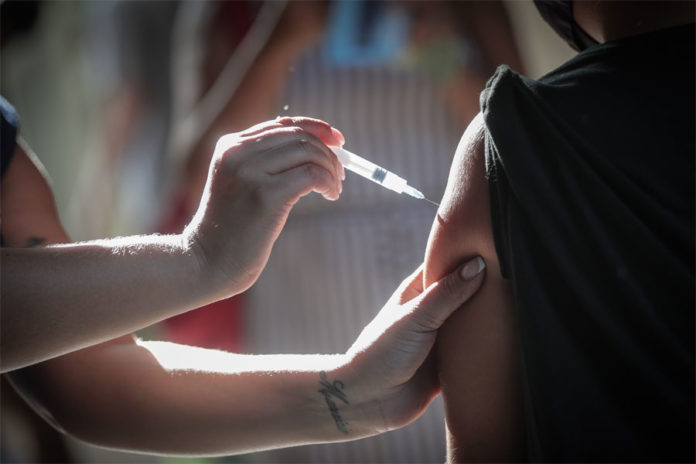
There are many well-known reasons why people have delayed getting the COVID-19 vaccine or booster – fear of vaccine side effects or negative physical reactions; skepticism of the science behind the vaccine; and others. But evidence suggests there may be another reason – a much simpler one – that impacts some people’s decisions about the vaccine: Fear of needles. This fear goes beyond children. According to the Journal of Primary Care and Community Health, it has been estimated that around 11.5 million to 66 million people of all ages may suffer from a fear of needles. Depending on the degree of the fear, individuals can experience anxiety, possibly leading to sweats, nausea, and even panic attacks. People who are afraid of needles may avoid vaccination and medical care unrelated to Covid-19, so their behavior toward Covid-19 is not necessarily outside their personal norms. However, during a pandemic, these fears and anxieties could contribute to a broader delay achieving herd immunity from COVID-19.
It is important for people who do not suffer from significant fear to remember that fear is not a choice, but something that occurs outside of an individual’s control. Fear of needles may be linked to genetics, the environment, and various personal experiences. People with disabilities may be afraid of needles because they are not able to understand the procedure or communicate their concerns. While most people remember some discomfort and pain from procedures that involve needles, people who suffer from more severe fears may have a true phobia, which can lead to severe panic and extreme physical responses such as fainting. It is important that family, friends, and loved ones provide support to the person who is fearful of needles and avoid judgment. Steps can be taken to ensure that the person is comfortable, and their fear is managed.
The Centers for Disease Control and Prevention, scientific journals, and other resources have suggested strategies that can be used to help individuals overcome their fear of needles so they can receive the protection of vaccination. One of the most common strategies is for the vaccine recipient to look away. Looking away can help reduce nerves and there is absolutely no reason to look at the injection when it is happening. However, there are many more tools available to the person who suffers from serious fear. One suggested strategy is to bring a friend or family member to the vaccination clinic. Having support from a trusted person can make a big difference in helping to keep the vaccine recipient calm. A second strategy is to distract the vaccine recipient. For example, they could listen to music or a podcast. A third strategy could be to address concerns with the vaccinator. Most of the vaccinators at the clinics have given hundreds or thousands of shots throughout their careers. Therefore, discussing needle fears with the vaccinator may help relieve stress. Lastly, individuals who suffer from extreme needle phobias can talk to a mental health provider. Having open and honest conversations with a trained professional can help treat the phobia. Also, healthcare providers may be able to provide pre-clinical support to their patients who suffer from needle phobia.
Most importantly, friends, family, healthcare professionals, and the general public can be compassionate toward the people who are fearful of needles and delaying their vaccination. This fear or phobia should be validated, not scorned, or dismissed, as this has been associated for years among millions of people – long before the COVID-19 pandemic occurred. For many people, vaccination is not a simple proposition, and the right resources and support can help them achieve the best outcome for their own health and those around them.
References:
https://journals.sagepub.com/doi/full/10.1177/21501327211007393
https://www.cdc.gov/childrensmentalhealth/features/needle-fears-and-phobia.html




















Excelente orientación para la comunidad y grupos familiares con niños de distintas edades.